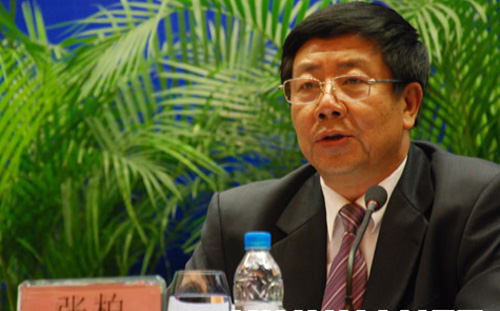Famous writer warns China against 'Great Cultural Leap'
- By Wu Jin
 0 Comment(s)
0 Comment(s) Print
Print E-mail China.org.cn, March 12, 2012
E-mail China.org.cn, March 12, 2012
|
|
|
Zhang Bai is a CPPCC member and former General-Director of the State Administration of Cultural Heritage. (file photo) |
"It is not tangible and cannot be purchased. no matter how much you want to pay. It is culture; it is the spiritual world of our ancestors, which should be preserved for future generations."
According to Zhang, the protection of any cultural heritage isn't that difficult. "It might require only a tidbit of money that could be saved on the costs of constructing luxurious office buildings."
Yet Feng held a similar view. "The accelerating urbanization has caused great damage to cultural relics that have been undergoing their formation for hundreds if not thousands of years," he said, "Our descendants will blame our ignorance and vulgarity when they become aware that we have left them nothing more than blocks of concrete buildings with similar dull features."
Boasting a history of 5,000 years, China never foregoes the pleasure of recalling its glorious past. However, what is up for questioning, are its confidence and ability to identify its culture in future.
"A society like today's, easily spawns nouveau riches," he said, "not cultivated people."
According to Feng, China never cared much about money throughout its history. "A nation which is solely driven by money, is hopeless," he said.
Yet his remark hit a nerve with Wang Weilin, Chairman of Dalian Wanda Commercial Properties Co. Ltd - known for its mass investments in plazas and movie theaters.
"I do not quite agree with Mr. Feng that China should not consider 'money' a valued element ," he argued as he sat beside Feng during the press conference, "Actually a country cannot survive without money."
He also quoted an old saying: "Noble men would obtain their coveted wealth in noble ways."






